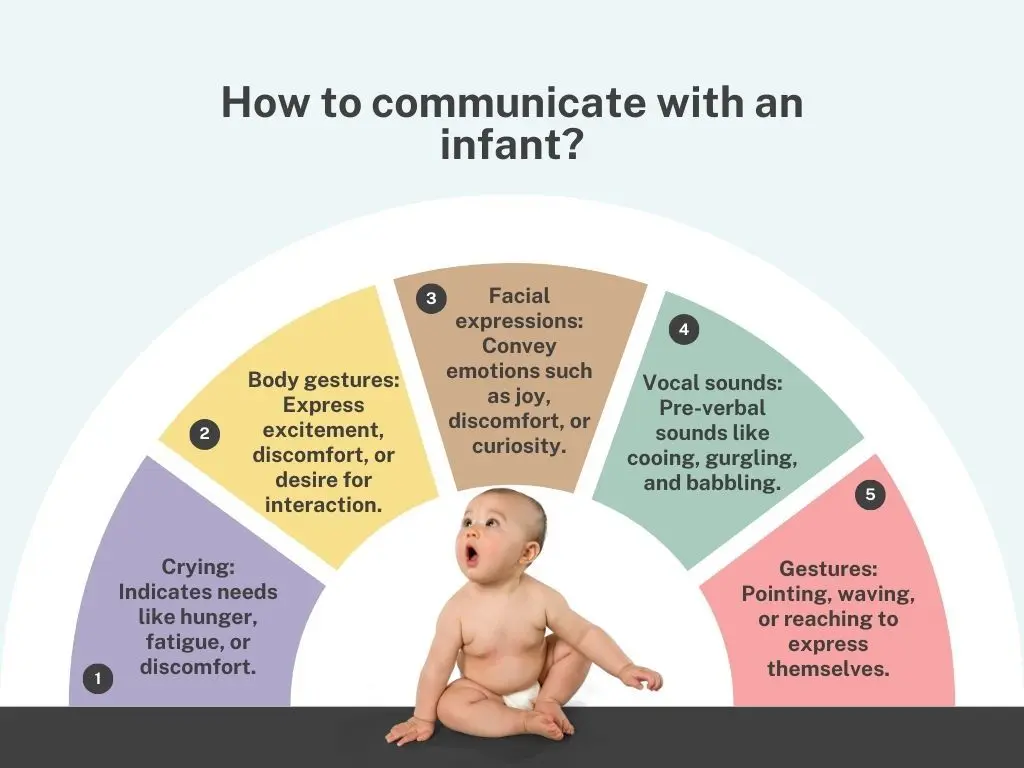Take the first step towards raising an emotionally resilient infant with our 10 practical tips. Build secure attachments, foster positive interactions, and promote self-regulation from day one.

Infancy is a critical period in a child’s life where the foundation for emotional well-being and future relationships is established. Nurturing emotional well-being in your newborns is crucial as it lays the foundation for healthy relationships, resilience, and overall mental health throughout their lives. This blog is all about laying the groundwork for your baby’s emotional journey and building those oh-so-important bonds right from the start. Get ready to discover practical tips and heartfelt advice on nurturing your little one’s emotional well-being while navigating the ups and downs of raising your infant. Let’s embark on this exciting journey together.
Why is Emotional Development in your infant crucial?
As a parent, providing effective emotional care to your infant is vital for their lifelong well-being. From the earliest smiles to recognizing emotions in others, these milestones shape their emotional intelligence, setting the stage for a balanced and prosperous life. By understanding and nurturing these key aspects of emotional development, you can help your infant grow into a healthy and productive individual, equipped to navigate life’s challenges with resilience and empathy.
What Should I do? Here are some best practical tips from start to end.
1. Create a safe home environment

A safe home environment significantly influences the emotional development of your baby positively. Creating a safe and loving space and providing unconditional love to your infants sets the stage for healthy emotional growth. Here are some useful tips for establishing a supportive atmosphere including maintaining consistent routines and ensuring ample physical and emotional comfort.
- Create a Calm Atmosphere: Maintain a quiet and serene environment in the baby’s surroundings to reduce stimuli and promote emotional well-being.
- Skin-to-Skin Contact: Engage in regular skin-to-skin contact, promoting bonding and a feeling of warmth and safety for the newborn.
- Establish Routine and Predictability: Establishing a consistent routine provides a sense of predictability for the baby, fostering emotional security.
- Encourage Positive Interactions: Smile, talk, and sing to the newborn regularly. Positive interactions contribute to emotional development and strengthen the parent-infant bond.
2. Build a Secure Attachment
A secure attachment between infants and caregivers is crucial for emotional well-being. This bond provides a sense of security and fosters trust, laying the foundation for positive relationships throughout life. Strategies for building a secure attachment involve responsive caregiving and consistent emotional availability. Like, cuddling while playing games and maintaining eye contact while talking. This approach will ensure love and security for your baby.
3. Always Be Responsive

Responsive parenting is a cornerstone of emotional care. Being attuned to an infant’s cues and needs fosters a sense of security, promoting emotional resilience. This approach involves active listening, prompt responses, and creating a reciprocal relationship that enhances the emotional connection between parent and child. Like, if your child is crying, you can not avoid finding the reasons until you calm him. This response from your side will make your baby sure that you are always there for him. This feeling releases oxytocin or happy hormones which soothes him.
4. Communication with Infants
Yup, infants do not speak but communicate in their unique way. Such as crying, body gestures, and facial expressions. In response as a caregiver, you can communicate through non-verbal cues, facial expressions, and touch to convey love and support. Effective communication involves tuning into these cues and responding with warmth and sensitivity. Let me show some communication styles. Here are:

- Crying: Babies communicate their needs and discomfort through crying. Different cries may signal hunger, fatigue, or the need for a diaper change.
- Facial Expressions: Babies use facial expressions to convey emotions. Smiles, frowns, and wide eyes can express joy, discomfort, or curiosity.
- Body Movements: Infants communicate through body language, such as kicking their legs in excitement, arching their back in discomfort, or reaching out for objects.
- Gestures: Even before they can speak, babies use gestures like pointing, waving, or reaching to express themselves and interact with their surroundings.
- Gurgling and Babbling: Pre-verbal communication includes cooing, gurgling, and babbling sounds, which indicate a baby’s exploration of vocal abilities and readiness for language development.
5. Validate your infant’s emotion
Providing validation to your infant involves acknowledging and responding to their emotions and needs. Use soothing words and gentle touches to convey empathy and understanding. Pay attention to their cues and offer reassurance through eye contact and a comforting tone of voice.
6. Address Challenges timely
Addressing challenges in emotional development is part of effective caregiving. Common issues, such as sleep disruptions or teething, can impact emotional well-being. Providing solutions and support during these challenging times helps build trust and resilience in newborns.
7. Be consistent
Consistency is key in nurturing your infant’s emotional well-being. Maintain regular routines, respond promptly to their needs, and provide a stable and loving environment. For example, establish bedtime rituals like reading a story every night or comforting them with cuddles during moments of distress. These consistent actions promote a sense of security and emotional stability in your infant.
8. Promoting Self-Regulation in Infants
Emotional care plays a role in promoting self-regulation in newborn care. Through consistent and sensitive caregiving, babies learn to manage their emotions and develop essential self-regulatory skills. This foundation contributes to emotional resilience and adaptability.
9. Celebrating Milestones in Emotional Development
Celebrate your infant’s emotional milestones by showering them with affection and praise. When they smile, laugh, or show signs of comfort, respond with enthusiastic encouragement and loving gestures. This positive reinforcement strengthens their emotional development and deepens the bond between you and your infant.
10. Seek support from healthcare professionals or parenting groups
If you notice any signs of concern regarding your infant’s emotional development or well-being, don’t hesitate to seek guidance from healthcare professionals or join parenting groups for support. For instance, consult your pediatrician if you observe persistent fussiness or difficulty in soothing your infant, as they can offer valuable advice and resources tailored to your child’s needs.
Conclusion
In conclusion, nurturing emotional care in newborn development is paramount for fostering lifelong well-being and healthy relationships. As caregivers, our responsive parenting, effective communication, and cultural sensitivity lay the foundation for our infant’s emotional development journey. By providing a nurturing environment filled with love, support, and understanding, we set the stage for their future success. Let’s continue to prioritize our infant’s emotional needs and create a safe space where they can thrive emotionally and build strong bonds with us and others. Take the first step today to ensure your infant’s emotional well-being.
You may also be interested in : Newborn Umbilical Cord Care: Do’s and Don’ts for Parents